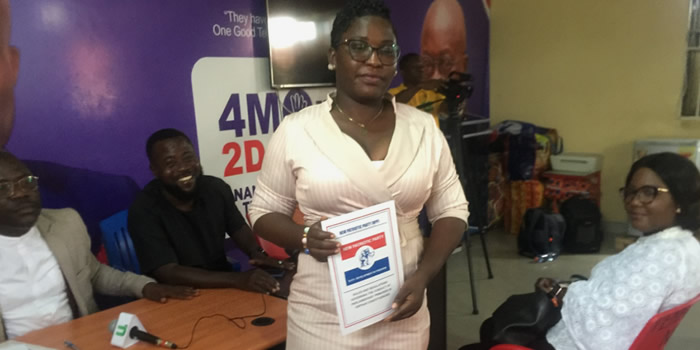

POLITICS
NCCE intensifies education on district-level elections in Tema
The Tema Metropolitan Office of the National Commission for Civic Education (NCCE) has intensified education on the District Level Elections (DLE), scheduled for Tuesday, December 19, to whip up interest.

Date Created : 12/13/2023 12:00:00 AM : Story Author : Laudia Sawer/Ghanadistricts.com
Ms Gifty Agyeiwaa Badu, the Tema Metropolitan Director, NCCE, told the Ghana News Agency that the apathy surrounding the DLE was worrying, notwithstanding its importance as the basis of development in the communities.
She said sensitisation on the election started at the beginning of the year, in line with the Commission’s 2023 theme: “30 Years of Constitutional Democracy, Building National Cohesion through Civic Education and Participation in Local Governance.”
The sensitisation was being done with identifiable groupings such as churches, mosques, schools, artisans, traditional authorities, and disabled associations, among others, aside using radio and information vans.
Ms Badu urged the electorate to exercise their civic right by voting for their representatives at the assembly. The elections start at 0700 hours to 1700 hours.
She reminded the electorate to vote based on issues and not money or personality and said they should not forget their Voter ID cards.
The District Level Elections were held every four years in accordance with Section Six of the Local Governance Act 2016 (Act 936), as amended by Act 940.
The DLE and the presidential and parliamentary elections should be at least six months apart.
The district assemblies brought decision-making and development to the doorstep of the people while the elected members also channelled the people’s concerns to the assemblies on issues including drains, roads, streetlights, and market centres.
The Act also mandates the assembly members to meet the electorate before each meeting of the assembly and report back to them on the decisions taken to solve problems raised by residents.
The Assembly members also act as development agents, mobilise the youth for communal labour and other self-help projects, as well as play a pivotal role in soliciting assistance from philanthropies for development purposes.


 facebook
facebook
 X
X
 Youtube
Youtube
 instagram
instagram
 +233 593 831 280
+233 593 831 280 0800 430 430
0800 430 430 GPS: GE-231-4383
GPS: GE-231-4383 info@ghanadistricts.com
info@ghanadistricts.com Box GP1044, Accra, Ghana
Box GP1044, Accra, Ghana